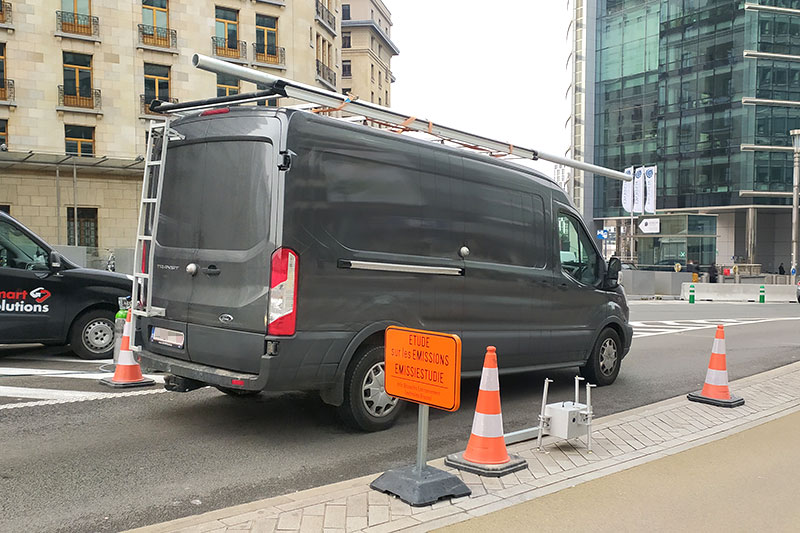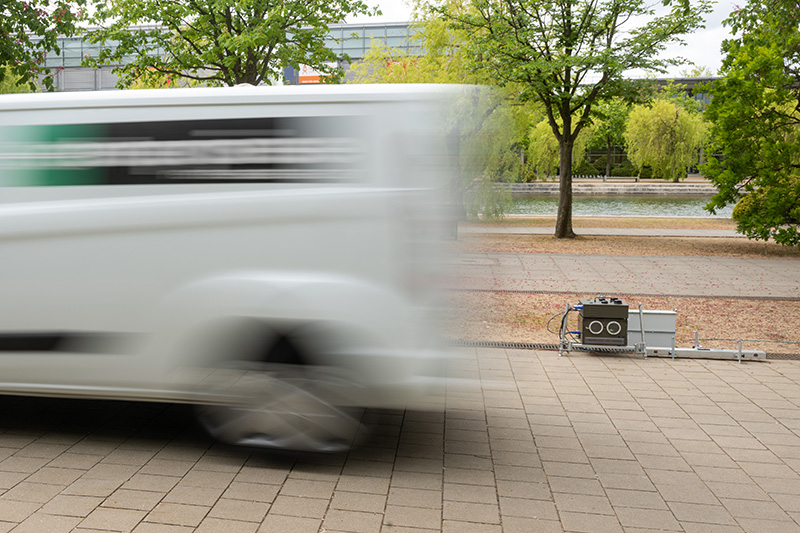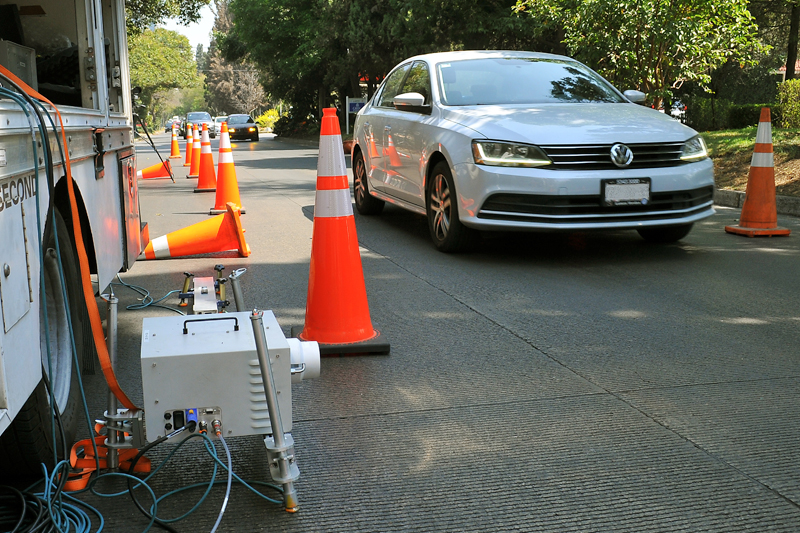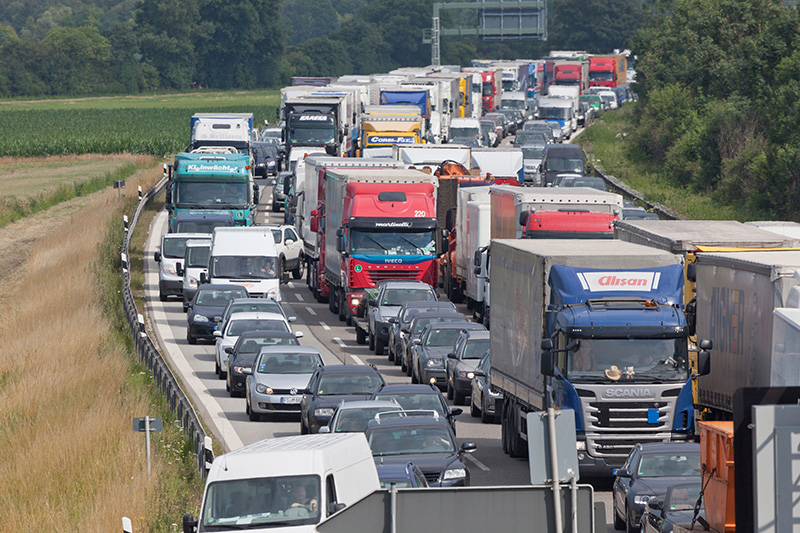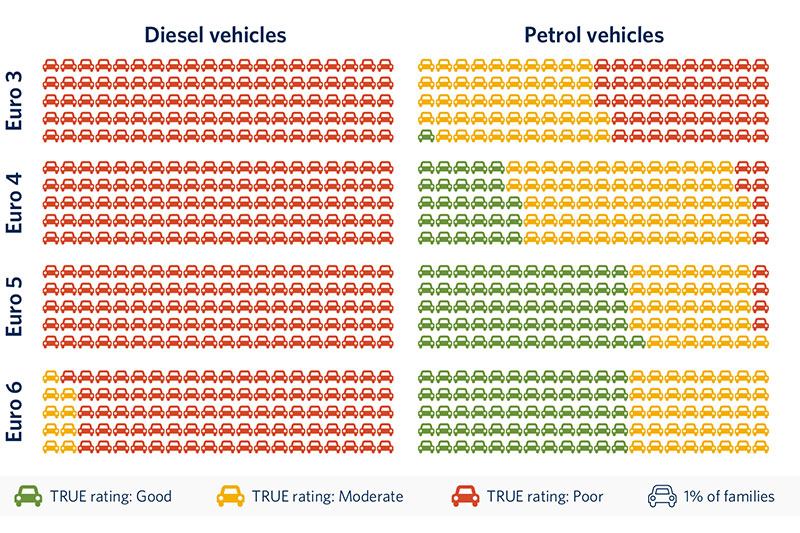Brussels study reveals first real world emissions results for the latest diesels - and it’s not great news
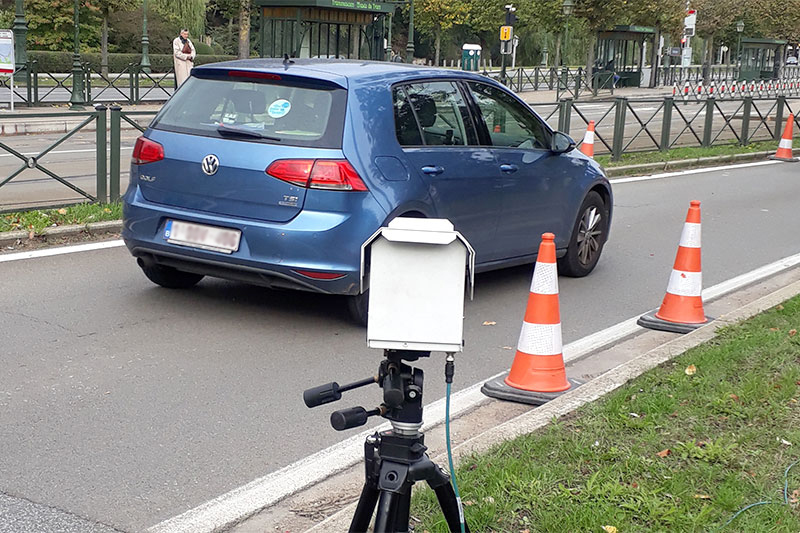
New research from The Real Urban Emissions (TRUE) Initiative in Brussels highlights the continuing air quality impact of even the newest diesel vehicles, the impact of older vehicle fleets on air quality and the potential implications of forthcoming Low Emission Zone Standards (LEZ) changes in the city.
The project was undertaken by Brussels Environment in partnership with the International Council for Clean Transportation (ICCT) as part of TRUE, funded by FIA Foundation and Bloomberg Philanthropies.
Analysis of the real-world emissions nitrogen oxides (NOx), particulate matter (PM) and particle number (PN) emissions of 130,000 unique vehicles took place in early 2021. The study is among the first large-scale collections of real-world emissions data for vehicles certified to the latest European emission standards for light-duty vehicles—Euro 6d-TEMP and 6d.
Key findings include:
- Euro 4 diesel cars, the vehicles restricted in the forthcoming Brussels ULEZ zone update, represented just 12% of the tested Brussels fleet, but contributed 47% of tailpipe PM;
- Euro 5 diesel cars and light commercial vehicles, which represent a fifth of the city’s fleet, contributed 40% and 50% the NOx emissions on the city streets;
- The newest Euro 6d-TEMP diesel vehicles showed significant improvements but still produce over 60% more NOx than equivalent Euro standard petrol vehicles;
- Diesel Particulate Filter (DPF) malfunctions were detected in 5% of the fleet fitted with the technology. These high emitting vehicles are estimated to be responsible for more than 90% of total particle number emissions from the group tested; and
- Emissions of diesel Euro 6d-TEMP are 74% lower than pre-RDE Euro 6 vehicles, however, average real-world emissions from Euro 6d-TEMP diesel cars remain 60% greater than those of petrol vehicles certified to the same standard which are still higher than expected based on regulatory on-road limits, highlighting the need for strong EURO 7 rules, and for quickly transitioning to “zero direct emissions” vehicles.
Air pollution is a major public Belgian health issue: according to the European Environment Agency, it is responsible for 9,000 premature deaths every year in the country, including around 1,000 in Brussels. As part of its effort to tackle air pollution and achieve its climate objectives, the Brussels-Capital Region set up a Low Emissions Zone in 2018 to gradually phase-out the most polluting vehicles to help clean up Brussels’ air, with a planned exit from fossil fuel-powered cars in the city by 2035. study demonstrated that the vehicles affected by the next milestones of Brussels’ Low Emission Zone emit disproportionate amounts of air pollutants and that phasing them out will have a significant positive impact on air pollution.
Alain Maron, Minister of the Government of the Brussels-Capital Region, responsible for Climate Change, Environment, Energy and Participatory Democracy, said: “The results of this study are extremely relevant for the Brussels Government. In addition to demonstrating the significant positive impact that the next milestones of our Low Emission Zone will have on air quality in 2022 and 2025, the data collected as part of this project will inform our transport decarbonization policy and enable us to take action against particulate filter fraud. By reducing the use of the car in the city and gradually phasing out the internal combustion engine, we improve the quality of life in our city.”
Sheila Watson, Deputy Director of the FIA Foundation, added: “TRUE work continues to highlight the difference between what vehicles should be emitting according to regulations, and what they actually emit on the streets of our cities. This data enables cities to target their policies to address air quality and to monitor their fleets to assess how those policies are working. FIA Foundation is proud to support such a useful contribution to the evidence-based policy development in which we firmly believe. We encourage other cities to work with TRUE”.
Antha Williams, Climate and Environment Program Lead at Bloomberg Philanthropies, said: "The data and findings from this study reveal just how dangerous high-emitting vehicles are to public health and air quality in cities. This research will equip policymakers with critical information to help tackle emissions and air pollution while validating the impacts of low emission zones and modern emission abatement technologies. We look forward to continuing to support data-driven efforts in Brussels and around the world that help communities fight climate change and improve public health."
Rachel Muncrief, Deputy Director of ICCT, added: “Continued vigilance and monitoring are necessary to ensure continued reductions in emissions from diesel and petrol, even as cities pursue the transition to zero emissions vehicles. TRUE will continue to provide technical and analytical support to cities to help them achieve their air quality and climate goals.”
Read the 'Evaluation of real-world vehicle emissions in Brussels' paper



